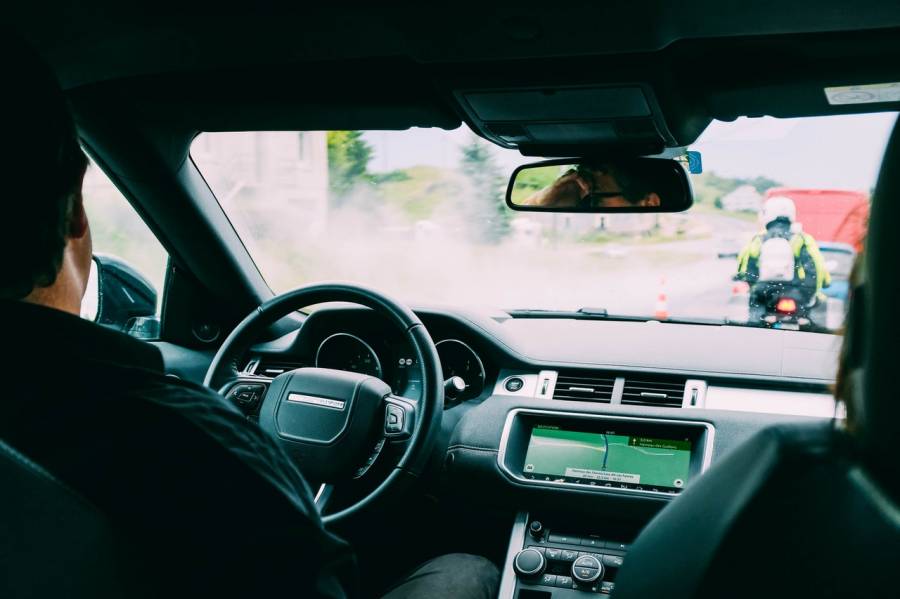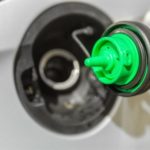Quick Navigation
A car is an assembly of different components, and these components are huge moving parts. Therefore it’s okay to hear a sound here and there.

However, when you hear some strange clicking noise from your engine, it might not be running as smoothly as it needs to.
Although not all clicking noises are ominous, the best way to remain worry-free is to understand what is happening and the probable solutions.
This article lists some of the problems resulting from clicking noise in the engine and recommends solutions.
Low Engine Oil
A low engine oil level can result in overheating and excess wear and tear.
However, most people don’t know that a low oil level can cause a clicking noise when stepping on the gas pedal.
In the absence of enough or adequate oil levels in the engine, the metal components in the engine rub against each other forcefully.
This result in a clicking sound you can hear from your engine.
When the engine oil level is low, it becomes difficult for the oil to circulate through to the top level of the component in the engine.
The moment this happens, you start hearing a sharp clicking sound when the engine is working.
And in most situations, the valvetrain components and the timing chain are the leading cause of that clicking noise when stepping on the gas pedal.
Leaking Exhaust Manifold
Another probable cause of the clicking noise is a leak in the exhaust manifold, significantly when accelerating and idling.
This leak results in a gas leakage through the exhaust manifold at high pressure.
And as the exhaust tries to escape at high speed, they make that clicking noise when stepping on the gas pedal.
The noise can be very annoying, but this does not stop you from driving your car.
On the other hand, the continuous leakage is not suitable for your car engine, so you need to fix it as fast as possible.
A Loose Spark Plug
A loose or cracked spark plug will make a clicking noise when stepping on the gas pedal while driving.
When you have a plug with an incorrect torque, it will cause you problems while trying to start the car.
But not only that, but it will also make wired sounds as you drive the vehicle.
The best thing to do with a damaged spark plus is to replace them, and at times, these damaged spark plugs can strip the cylinder head thread, and you might need to replace the cylinder head.
Rod Knock
It is important to note that the rod in the engine typically has a bearing attached.
And when this bearing becomes terrible, the rod then knocks around, resulting in an engine clicking noise when stepping on the gas pedal.
These worn-out bearings usually cause the rod to move, and while moving around, it results in a very sharp clicking sound.
It might not cause any immediate problems or changes to your engine temperature. However, the RPM will significantly change.
With this type of problem, the solution is to replace the entire motor. That’s the best way to stop the clicking noise when stepping on the gas pedal.
It might be a bit expensive. However, it is inevitable if you try to manage it or give it a partial fix.
It will only be temporary and can lead to a more severe problem.
Adjustment Valve Problem
The failure to adjust the valvetrain can result in a clicking sound; in most situations, these valves are the principal reason for the clicking sound.
Therefore this is the first thing to look out for when you have a clicking noise when stepping on the gas pedal.
These valves need to move fast in a short distance. If their regulation is not as exact as it should be, they will start making the wrong move.
It then results in a clicking sound while accelerating at high speed.
For clarity, the valves have so many components moving simultaneously within a precise distance, and they all work together.
Therefore, if any part is worn out, this may result in a clicking noise when stepping on the gas pedal.
Because the valve’s length when moving will not be as exact as it should be.

Front Engine Accessories Problem
Front engine accessories like ac compressors, water pumps, pulleys, and tensioners can cause clicking noises while driving.
If any of the listed accessories are damaged, one of the common symptoms is a clicking sound and other wired sounds coming from the engine area while driving.
It would be best to have a mechanic’s stethoscope inspect the car to discover the real problem.
And even if you can do that, you will still need good experience to pinpoint the exact problem.
However, it is much easier for you to take your car to a mechanic for inspection.
Normal Wear Outs
It is very common among old vehicles. Because when a car is in use, many components move and work together simultaneously.
It will generally result in wear out of some of these components, which will cause them not to run as smoothly as they used to—resulting in wired clicking noise when stepping on the gas pedal.
Take the fuel injector as an example, and this particular component can cause a clicking sound as it ages because they have tinny nozzles that can result in a clicking sound the moment they wear out and start clogging.
Faulty Engine Fan
A faulty engine fan can be responsible for a clicking sound, especially when they are loose.
The moment the fan is loose, it starts touching some other part of the engine component.
And while you are driving, this will constantly happen, resulting in some clicking noise when stepping on the gas pedal.
Visually inspecting the engine fan will give the information needed about the engine fan.
And if you don’t see any problem with the fan, you can check the bolts or clips; they also cause the same problem.
Solutions
We have gone through some potential problems that may cause clicking while driving or accelerating and give some solutions while listing them.
Furthermore, we will discuss steps you must take to ensure that you solve the underlying problem and the best way to solve that problem.
Service Your Car
Having a regular maintenance check is very good for all vehicles and will help you detects problems that can cause significant damage early.
During this regular check, things that can result in clicking can be solved, removing the noise altogether.
Finding The Source Of The Problem
After going through routine servicing, if you are still experiencing the same clicking sound problem, it is time to narrow down the problem.
In this case, check the spark plug and the host of other things listed above. A thorough engine inspection should point you to where the problem is.
Repair Or Replace Parts
After detecting the faulty parts, fixing or replacing the elements is time. And knowing which part to replace or repair depends significantly on the tricky part.
However, to be in a safe spot, it’s better to replace any component that is the primary cause of the clicking problem.
Conclusion
Most people can easily avoid the clicking engine noise significantly if it does not affect the vehicle’s performance, and you can still move around with it.
However, you should not just overlook the problem because it can lead to other issues.
Keeping the vehicle running smoothly is better to avoid significant unwanted damage.

Kevin has been hanging around cars and automobile magazines since he knew what a car is. He grew up in his father’s 1995 Mercedes E320 Wagon and Volkwagon Phaeton W12 2004. He rides his first car, a manual 1979 Porche 911SC.
Currently, he owns an Acura Integra GS-R. During his childhood, he showed a keen interest in how things actually work and fix them. This passion transforms into his eternal love for cars and bestows him an ideal position in one of the leading automobile companies; whenever he finds time, he takes out his Acura and opts for the longest possible route to find hidden wholesome pleasure in a road trip.
Want to read some of the articles written by Kevin? Head to our blog section to find out all the articles written by Kevin.




![Gas Gauge Goes Up And Down [Causes + Solutions] Gas Gauge Goes Up And Down [Causes + Solutions]](https://carsupercare.com/wp-content/uploads/2022/04/Gas-gauge-goes-up-and-down-Causes-and-Solutions.docx-150x150.jpg)

